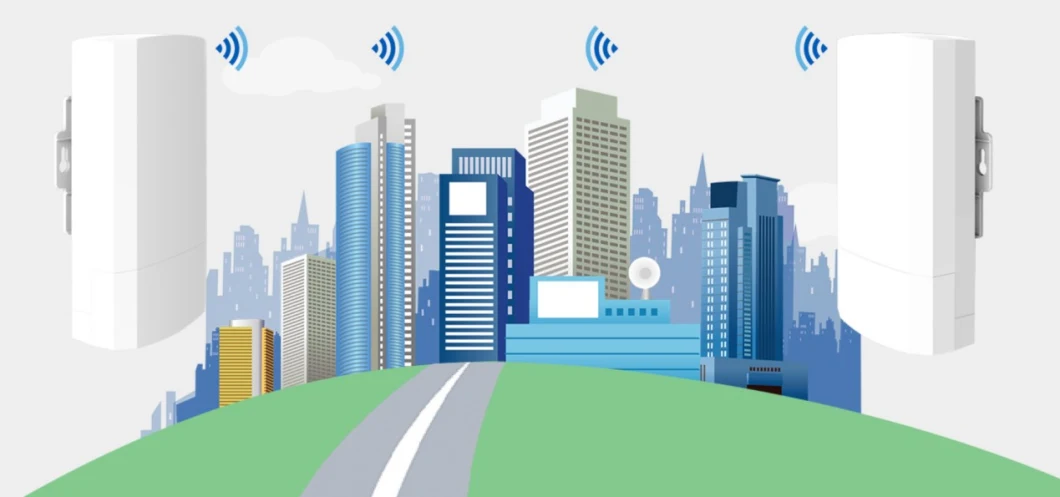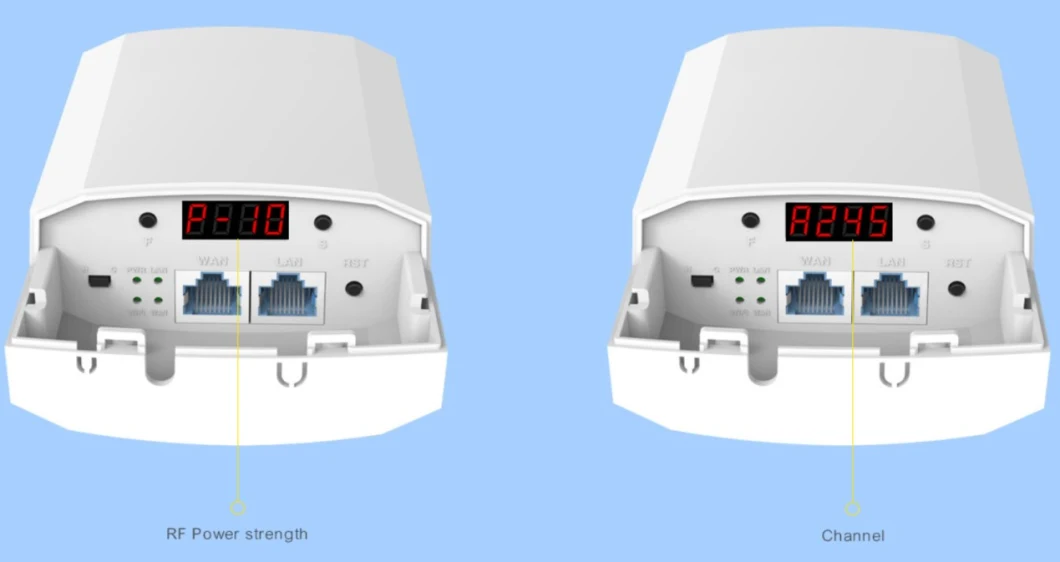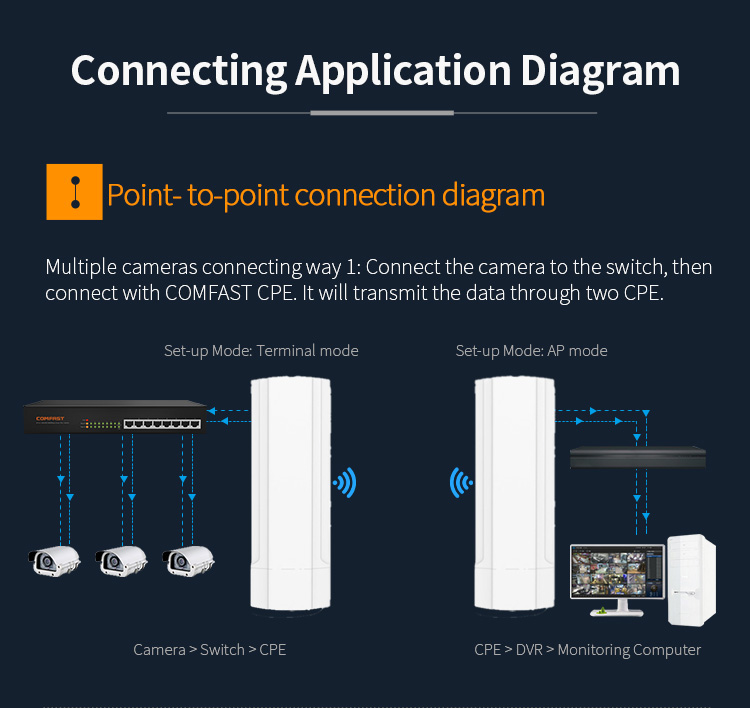Please submit your message online and we will contact you as soon as possible!
- Experience security and speed, without compromise.

2024-10-12

A wireless bridge acts as a powerful tool to connect your network across large distances. It links your router to devices in fixed locations, ensuring seamless connectivity. You can use it to boost network coverage in big buildings or connect distant offices. The benefits are numerous:
Enhanced Network Coverage: Perfect for malls, office complexes, and retail outlets.
Cost-Effective: Reduces the need for extensive cabling.
Versatile Applications: Ideal for manufacturing, logistics, and transportation sectors.
By using a wireless bridge, you can enjoy flexible and scalable network solutions that enhance efficiency and reduce costs.

To set up a wireless bridge, you'll need some essential equipment and software. Let's break it down.
You'll need reliable wireless bridge devices. Consider options like the Premium Wireless Bridge for Sale - Buy High-Quality Wireless Bridge Devices to Meet Your Network Needs (gzcomm.com)
Don't forget the necessary cables and connectors. These ensure a secure connection between your devices. Ethernet cables are typically used to connect the bridge to your network.
Ensure your operating system is compatible with the wireless bridge software. Most devices support major operating systems like Windows, macOS, and Linux. Check the specifications of your chosen device for compatibility details.
You'll need to configure your network settings. This involves setting IP addresses and ensuring your network's security protocols are in place.
By gathering the right equipment and understanding the prerequisites, you're well on your way to setting up a seamless wireless bridge.

First, find the right spots for your wireless bridge devices. You want them to have a clear line of sight to each other. This helps reduce interference and boosts signal strength. If you're setting up indoors, avoid placing them near thick walls or metal objects. For outdoor setups, make sure they're weatherproof and mounted securely. A good position ensures a strong and stable connection.
Once you've positioned the devices, it's time to connect them. Use Ethernet cables to link the wireless bridge to your network. Plug one end into the bridge and the other into your router or switch. Make sure the connections are tight and secure. This step is crucial for a reliable network link. Double-check everything before moving on to the software setup.
Now, let's dive into the software side. You'll need to access the device interface to configure settings. Open a web browser and enter the IP address of your wireless bridge. This address is usually found in the device manual. Once you're in, you'll see a dashboard with various options. Take a moment to familiarize yourself with the layout.
With access to the interface, you can now configure the network settings. Start by setting the IP addresses for each device. Make sure they don't conflict with other devices on your network. Next, adjust the security settings to protect your connection. Use strong passwords and enable encryption if available. These steps ensure your network remains secure and efficient.
By following these steps, you can set up your wireless bridge with ease. Proper positioning and secure connections lay the groundwork for a seamless network experience. With the right configuration, you'll enjoy enhanced connectivity across your space.
When setting up a wireless bridge, you might run into some hiccups. Let's tackle common issues and how you can fix them.
Signal interference can mess with your connection. Nearby electronic devices or thick walls might cause this. Try moving your devices to a spot with fewer obstacles. You can also increase the transmit power on the non-root bridge. This adjustment often boosts throughput and reduces interference.
Sometimes, devices just don't play well together. Make sure your wireless bridge is compatible with your router and other network devices. Check the specifications and update any outdated firmware. Compatibility ensures everything works smoothly.
Incorrect settings can lead to headaches. Double-check your IP addresses and security settings. Ensure they match your network's requirements. If something seems off, reset the device to its default settings and start fresh. This often resolves configuration errors.
Outdated firmware can cause problems too. Regularly check for updates from the manufacturer. Installing the latest firmware can fix bugs and improve performance. It’s a simple step that keeps your network running efficiently.
By addressing these common issues, you can maintain a stable and efficient wireless bridge setup. Keep an eye on potential problems, and you'll enjoy seamless connectivity.
Wireless bridges offer you a level of flexibility that traditional wired networks simply can't match. They allow you to expand your network coverage without the hassle of laying down physical cables. This makes them perfect for environments where wiring is impractical or too costly.
Imagine you need to connect different parts of a large building or even separate buildings. A wireless bridge can do this effortlessly. It acts as a bridge between your existing network and remote areas, ensuring that every corner has access to the internet. Whether it's a sprawling office complex or a multi-story mall, you can rely on a wireless bridge to keep everything connected.
Nobody likes dealing with a mess of cables. With a wireless bridge, you can significantly reduce the amount of cabling needed. This not only makes your space look cleaner but also simplifies maintenance. You won't have to worry about tangled wires or tripping hazards. Plus, less cabling means fewer points of failure, which enhances the reliability of your network.
When it comes to cost, wireless bridges are a smart choice. They help you save money in several ways, making them an attractive option for both businesses and homes.
Installing a traditional wired network can be expensive. You have to consider the cost of cables, labor, and potential disruptions to your space. A wireless bridge eliminates many of these expenses. You don't need to tear up walls or floors to lay cables, which means you can set up your network faster and at a lower cost.
Wireless bridges are not just cost-effective in terms of installation; they also help you save on energy costs. They consume less power compared to maintaining a large wired network. This energy efficiency translates to lower utility bills, making wireless bridges an eco-friendly choice for your connectivity needs.
By choosing a wireless bridge, you gain the flexibility to expand your network easily and cost-effectively. Whether you're looking to enhance connectivity in a commercial setting or streamline your home network, a wireless bridge offers a practical solution.
Wireless bridges open up a world of possibilities for both home and business environments. Let's explore how you can leverage this technology to enhance connectivity in various settings.
Imagine having a large property with a garage or barn far from your main house. Running cables to these remote areas can be costly and impractical. A wireless bridge offers a simple solution. You can extend your internet connection to any outbuilding on your property without the hassle of wires.
For avid streamers and gamers, a stable internet connection is crucial. A wireless bridge can provide the high-speed connectivity needed for uninterrupted streaming and gaming. By reducing latency and increasing bandwidth, it ensures smooth performance. Whether you're watching your favorite shows or engaging in online gaming, a wireless bridge keeps your connection strong and reliable. This means fewer buffering issues and more enjoyable entertainment experiences.
In a business setting, maintaining a robust network is essential. Wireless bridges can connect different parts of an office complex without the need for extensive cabling. This not only saves on installation costs but also enhances network flexibility. For example, MPR Technical Services successfully implemented a point-to-point wireless bridge at The Green School London. This setup provided high-speed internet access across the campus, improving communication and collaboration. By adopting similar solutions, your business can enjoy efficient and cost-effective connectivity.
With the rise of remote work, ensuring employees have reliable internet access is more important than ever. A wireless bridge can extend your office network to remote locations, supporting seamless work-from-home setups. This technology allows for secure data transfer and easy file sharing, making remote work more efficient. By investing in a wireless bridge, you can provide your team with the tools they need to stay connected and productive, no matter where they are.
Wireless bridges offer versatile applications that cater to both personal and professional needs. Whether you're looking to enhance home networking or improve business connectivity, this technology provides a practical and efficient solution.
Wireless bridges offer a host of benefits that can transform your connectivity experience. They provide enhanced network coverage, reduce installation costs, and offer versatile applications across various sectors. Whether you're connecting remote areas in a home or boosting network coverage in a commercial setting, wireless bridges deliver reliable and efficient solutions.
"Wireless bridges play an important role in easing connections, hence addressing clients’ satisfaction and ensuring effective organizational performance in commercial premises."
Explore the potential of wireless bridges in your environment. From industrial settings to educational institutions, this technology offers a flexible and cost-effective way to meet your connectivity needs. Embrace the future of seamless connectivity with wireless bridges.
Please submit your message online and we will contact you as soon as possible!